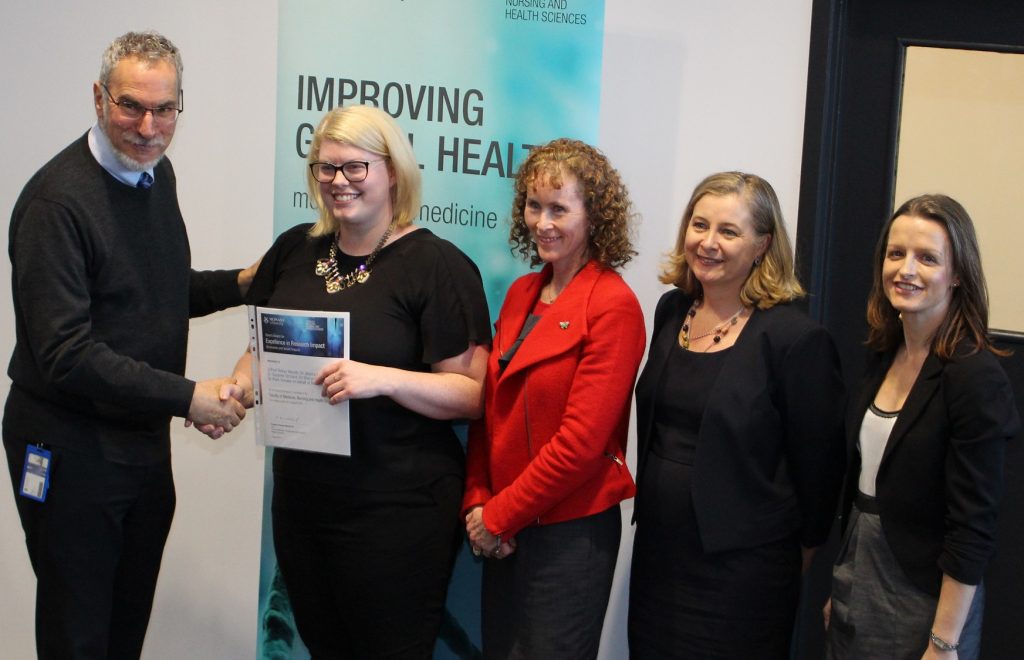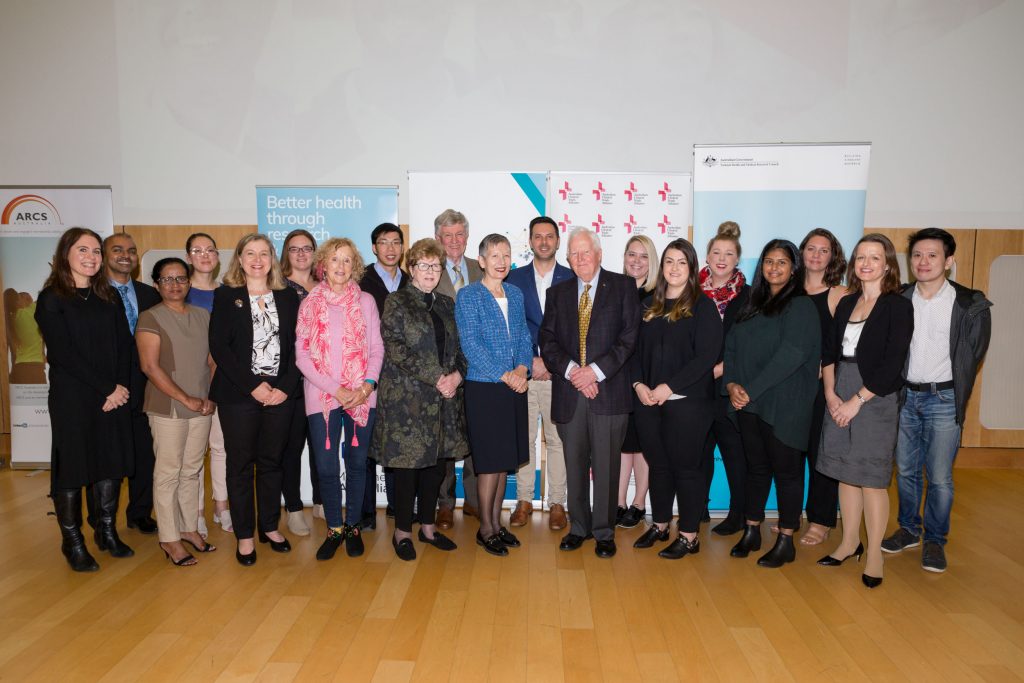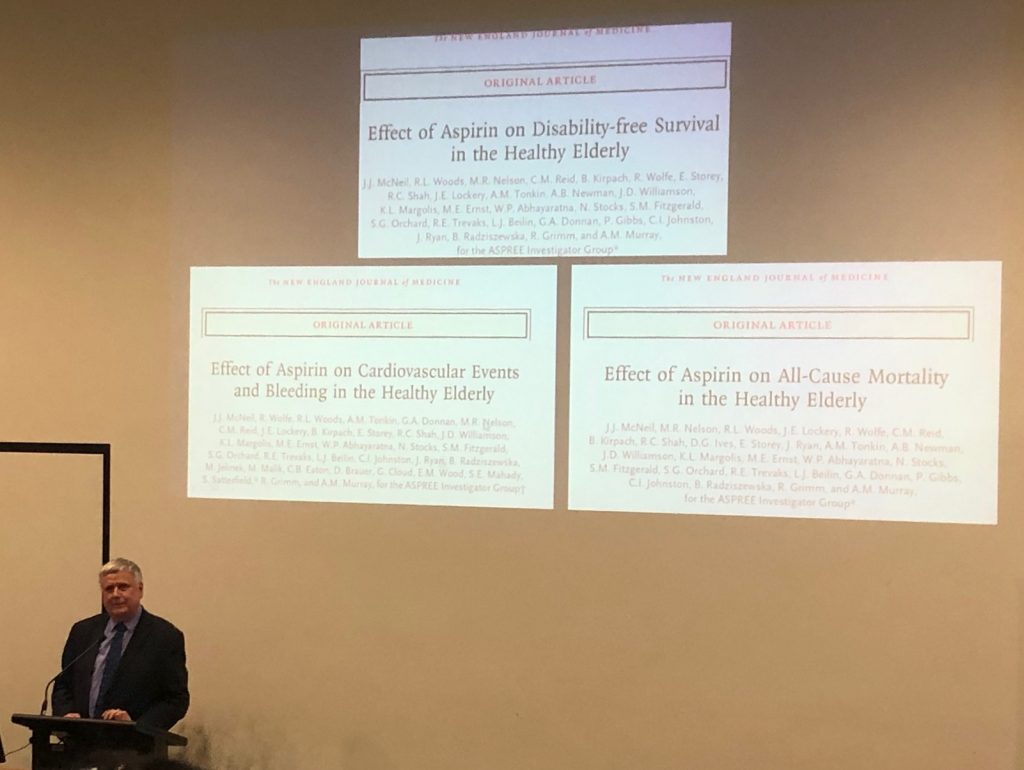Impact of ASPREE trial on public health recognised
We are pleased to share three Australian research accolades recently awarded to the ASPREE clinical trial for its significance to public health. ASPREE team acknowledged the contribution of participants, GPs and fellow team members to the world-first trial.
The three awards are:
Monash University Dean’s Award (Faculty of Medicine, Nursing and Health Sciences)
The Dean’s award recognised the impact of ASPREE on the healthcare of our ageing population. Despite the widespread use of aspirin, before ASPREE, no trial had adequately supported its use for primary prevention in healthy older adults. Use was based on secondary prevention studies (i.e. after a heart attack) and on a few primary prevention studies in mostly middle-aged adults.

In March 2019, citing the results of the ASPREE trial (published only six months prior), the American College of Cardiology and American Heart Association (ACC/AHA) jointly published updated guidelines in which they recommended against routine use of low-dose aspirin for primary prevention of cardiovascular disease in healthy elderly adults.
Australian Clinical Trial Alliance – Clinical Trial of the Year

On the 20th May (International Clinical Trials Day), the Australian Clinical Trial Alliance (ACTA) awarded ASPREE with the inaugural ‘Clinical Trial of the Year’ for its significant contribution to the health of older people around the world.
Executive Director, Associate Prof Robyn Woods, accepted the award on behalf of ASPREE, acknowledging the contribution from ASPREE participants, GPs and the research team and support staff to the trial.
“ASPREE was a huge undertaking that is already seeing real impact in the community, with millions of older people around the world without a clinical need to take aspirin, now able to take one less daily medication,” she said.
ACTA Chair, Prof John Zalcberg said, “Clinical trials are vital to ensuring patients receive the best treatments and get the best outcomes. Effective and efficient treatments not only reduce suffering they can also mean less time spent receiving treatment and less money spent by the patient and the health system.”
Alfred Research Alliance – Highest Impact Factor
The following month, ASPREE’s Principal Investigator in Australia, Prof John McNeil (pictured below), accepted the Alfred Research Alliance award for highest impact factor publications. ASPREE was a gold standard clinical trial and of such significance to older adults and doctors that the prestigious New England Journal of Medicine took the unusual step of publishing three ASPREE papers at the same time.





